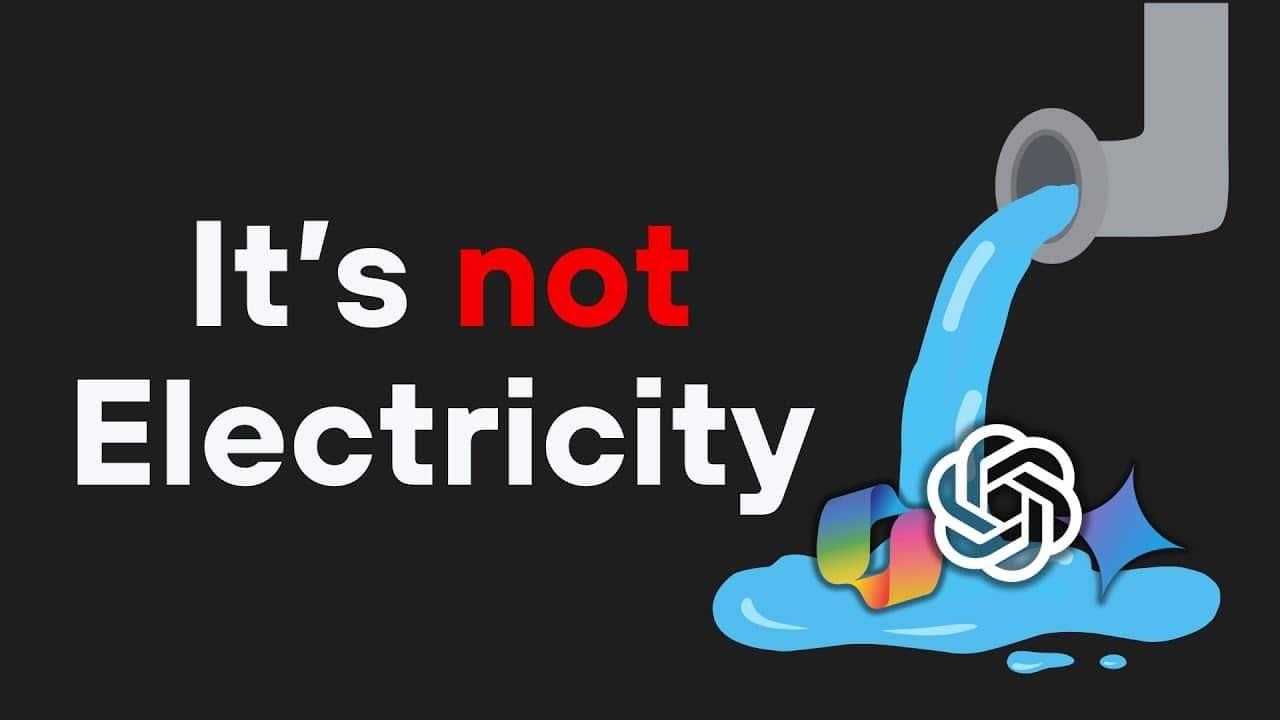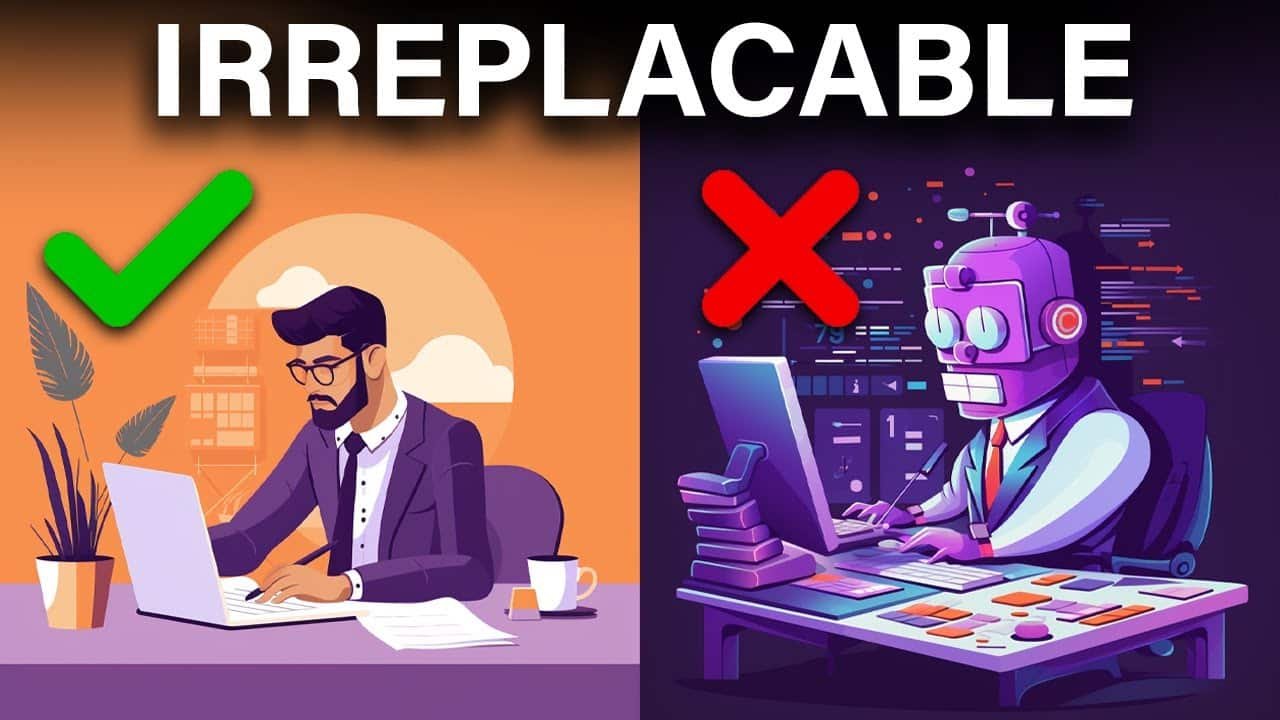🏠 Smart Homes Using AI in India Opening Up New Possibilities [2025]
🔹 Introduction
Smart homes powered by artificial intelligence (AI) are no longer science fiction – they are the new reality, especially in India. With the country’s rapid tech adoption, increasing internet penetration, and booming smart device market, Indian households are stepping into the future of living. This article explores how smart homes using AI in India are opening up new possibilities in 2025. From voice assistants and automation to energy efficiency and enhanced security, we dive deep into how AI is reshaping Indian homes.
🤖 What is a Smart Home?
A smart home is a residence equipped with internet-connected devices that enable remote and automated control of various household systems and appliances. These devices, often powered by artificial intelligence (AI), can be managed via smartphones, voice assistants, or centralized control hubs, enhancing convenience, energy efficiency, and security for homeowners.
In India, the adoption of smart home technology is on the rise, with brands like Mi, Wipro, Realme, Amazon (Alexa), and Google Nest offering a range of products tailored to the Indian market. This surge is driven by increasing internet penetration, a growing middle class, and a heightened awareness of technological advancements.
Key Components of a Smart Home
Smart homes integrate various devices and systems.
Smart Lighting: LED bulbs and lighting systems that can be controlled remotely, set on schedules, or adjusted based on occupancy, contributing to energy savings and personalized ambiance.
Smart Thermostats and Air Conditioners: Devices that learn user preferences and adjust temperature settings automatically, optimizing energy consumption and enhancing comfort.
Smart Security Systems: AI-powered cameras, motion sensors, and smart locks that provide real-time surveillance, alerts, and remote access, bolstering home security.
Smart Appliances: Kitchen and household appliances, such as refrigerators, washing machines, and ovens, that can be monitored and controlled remotely, offering convenience and efficiency.
Smart Plugs and Switches: Adapters that enable traditional devices to be controlled remotely, allowing for seamless integration into the smart home ecosystem.
For those interested in developing their own AI-powered applications to complement smart home devices, our guide on How to Build a No-Code App Using AI In 4 Easy Steps offers a comprehensive walkthrough.
Benefits of Smart Homes
The integration of AI and smart devices in homes offers numerous advantages:
Convenience: Automated routines and remote control capabilities simplify daily tasks, allowing homeowners to manage their environment effortlessly.
Energy Efficiency: Smart systems optimize the use of electricity and water, reducing waste and lowering utility bills.
Enhanced Security: Real-time monitoring and alerts provide peace of mind, with the ability to respond promptly to potential security threats.
Personalization: AI algorithms learn user preferences, tailoring the home environment to individual lifestyles and habits.
The Top 10 AI News – Weekly AI Update highlights recent advancements in AI assistants and their integration with smart devices, underscoring the rapid evolution of this technology.
Challenges in Implementing Smart Homes in India
Despite the benefits, the adoption of smart home technology in India faces certain challenges:
High Initial Costs: The upfront investment for smart devices and systems can be a barrier for many consumers.
Internet Connectivity Issues: Reliable and high-speed internet is essential for optimal performance, which can be inconsistent in certain regions.
Data Privacy Concerns: The collection and transmission of personal data by smart devices raise questions about security and privacy.
Technical Complexity: Setting up and maintaining a smart home system may require technical expertise that not all users possess.
Exploring innovative applications of AI, such as its potential to Predict Earthquakes, showcases the broader implications and challenges of integrating AI into everyday life.
The Future of Smart Homes in India
The trajectory of smart home technology in India is poised for significant growth. As devices become more affordable and user-friendly, and as internet infrastructure improves, a larger segment of the population is expected to embrace smart living solutions. Furthermore, advancements in AI will lead to more sophisticated and intuitive home automation systems.
Staying informed about the latest developments in AI and smart home technology is crucial for consumers and industry professionals alike. Regular updates, such as those provided in our AI Weekly Update, can offer valuable insights into emerging trends and innovations.
🧠 The Role of AI in Smart Homes
As homes evolve from traditional spaces into tech-powered environments, Artificial Intelligence (AI) plays a central role in this transformation. Gone are the days when you had to manually switch off lights, set timers for appliances, or worry about home security while traveling. Thanks to AI, smart homes are no longer just a futuristic concept—they are here, and they are redefining how we live, especially in countries like India.
But how exactly does AI contribute to making our homes smarter, more intuitive, and efficient? Let’s break it down.
🔁 Predictive Automation: Learning Your Lifestyle
One of the most powerful features of AI in smart homes is predictive automation. This means your home can “learn” from your habits and routines over time. For instance, if you usually wake up at 6:30 AM, your AI-enabled home can start the coffee maker, gradually brighten your bedroom lights, and adjust the thermostat—all before you even get out of bed.
AI uses data from your daily behavior—like when you turn lights on, how often you use certain appliances, or when you leave home—to create patterns. These patterns allow the system to automate tasks without needing constant input.
This feature is particularly useful in urban Indian households, where daily routines are often jam-packed. Automation allows for time savings, better comfort, and convenience, especially for working professionals and families.
💡 You can read more about how AI is streamlining everyday tasks in our AI Tools for Students and Productivity article, which covers how similar principles of automation are improving lives.
🎤 Voice Control: Talk to Your Home
The integration of AI with voice assistants like Amazon Alexa, Google Assistant, and Apple’s Siri brings a whole new level of control and ease. Voice recognition technology allows you to command your smart devices without lifting a finger.
Want to dim the lights, change the TV channel, or ask for the weather update? Just speak.
This voice-driven control is especially beneficial for elderly people, kids, or individuals with mobility challenges, making smart homes more inclusive and accessible.
India has seen rapid adoption of voice assistants in regional languages too, making these AI features more user-friendly for non-English speakers. This multilingual integration is expected to drive wider adoption in tier 2 and tier 3 cities.
⚡ Energy Optimization: Smarter Power Usage
AI doesn’t just make homes convenient—it also makes them energy-efficient. Smart homes equipped with AI can detect when rooms are unoccupied and turn off lights or fans accordingly. They can also adjust the power usage of heavy appliances based on energy rates and peak usage hours.
By analyzing past energy consumption patterns, AI systems can give recommendations to reduce unnecessary power use. Over time, this can significantly lower electricity bills and reduce your carbon footprint.
In a country like India, where energy demand is high and conservation is essential, AI-based energy management is a game-changer.
🔌 Curious about how other AI technologies are tackling real-world challenges? Explore Can AI Predict Earthquakes? for another fascinating look at how AI is being applied for critical problem-solving.
🔐 Home Security: Smarter, Safer Living
Security is one of the most sought-after features in any smart home setup. AI is making homes more secure and vigilant than ever before.
- Facial Recognition Cameras: Recognize family members and alert you if an unknown person approaches.
- Smart Door Locks: Allow you to lock and unlock doors remotely and generate access logs.
- Motion Sensors: Detect unusual activity and send real-time alerts.
- Intruder Alerts: Use AI to differentiate between a pet walking around and a possible intruder.
These AI-based security systems are constantly learning and adapting, reducing false alarms and making your home proactively secure. Many of these systems can be integrated with your smartphone for real-time control—even when you’re miles away.
🛡️ Learn more about advanced AI-powered solutions on our Top 10 AI Weekly News where we often explore emerging innovations in home security tech.
🌐 The Indian Context: Rising AI Smart Home Adoption
India is witnessing a growing interest in AI-driven smart home systems, especially in metro cities like Bengaluru, Mumbai, Delhi, and Hyderabad. Affordable internet, increasing smartphone usage, and falling prices of smart devices are encouraging more households to invest in these technologies.
Brands like Mi, Wipro, Realme, and Zebronics offer budget-friendly AI home solutions tailored to Indian consumers. Meanwhile, global giants like Google Nest and Amazon Alexa are introducing localized versions to suit regional preferences and needs.
The challenges—like data privacy concerns, cost, and lack of awareness—still exist, but as AI technology becomes more accessible, we’re moving toward a future where smart homes might become the norm rather than the exception.
💡 The Future Is Smarter
Imagine a home where the AC adjusts itself before you arrive, the lights dim when it’s bedtime, your refrigerator suggests recipes based on what’s inside, and your home reminds you if you’ve left the stove on. That’s not just a dream—it’s becoming reality.
With further advancements in machine learning, natural language processing, and IoT (Internet of Things), AI in smart homes will become even more personalized and powerful.
📲 Stay ahead of the curve by following our in-depth guides and reviews on AI Insider Daily where we break down complex AI innovations for everyday readers.
📈 Why Smart Homes Are Gaining Momentum in India

1. 💡 Affordable Smart Devices
India has seen a surge in affordable smart gadgets. Entry-level smart bulbs, plugs, and cameras are available for under ₹1,000, making smart homes more accessible to the middle class.
2. 📶 Growth in IoT & 5G
With Jio and Airtel expanding 5G services and IoT infrastructure, connectivity is improving. This fuels real-time automation and control, even in remote areas.
3. 🛡️ Increased Focus on Safety
Urban Indian families are investing in AI-based home security — smart doorbells, surveillance systems, and automated locks offer peace of mind, especially for elderly or working couples.
4. 🏙️ Government Push for Smart Cities
Initiatives like the Smart Cities Mission and Digital India encourage adoption of smart tech in households and urban planning.
🏡 Real-Life Examples of AI-Powered Smart Homes in India
- Tata Smart Homes: Partnering with Google and Amazon to deliver voice-enabled smart homes.
- Godrej Properties: Integrating AI-powered security and automation systems.
- Smart Apartments in Bengaluru & Pune: High-rise apartments now come pre-installed with smart lighting, appliances, and surveillance.
🧾 AI in Smart Homes: Key Features & Benefits
| Feature | Benefit |
|---|---|
| AI Voice Assistants | Hands-free control over appliances |
| Smart Thermostats | Reduce electricity bills by 20–30% |
| Security Cameras | Real-time alerts & facial recognition |
| Smart Lighting | Auto-schedule based on natural light |
| AI Vacuum Cleaners | Clean floors without manual effort |
⚠️ Challenges Facing AI Smart Homes in India
1. 🚧 Limited Internet Connectivity in Rural Areas
AI smart homes require fast and stable internet. But many Tier-2 and rural areas in India still lack proper digital infrastructure. According to TRAI (Telecom Regulatory Authority of India), rural broadband penetration is improving but still lags behind urban zones.
2. 💸 High Initial Setup Costs
Installing AI smart home devices can be costly. A report by Statista shows that India’s smart home market is growing, but affordability remains a concern for middle-income groups.
3. 🔐 Privacy & Data Security Concerns
Devices that collect personal data can be targets for cyber threats. The Internet Society warns that smart devices often lack proper encryption or data protection, which could lead to breaches.
5. 🔄 Compatibility & Ecosystem Fragmentation
The IoT Analytics platform highlights that fragmented device ecosystems are one of the biggest barriers to smart home adoption globally—including in India.
🔮 The Future: What’s Next for Smart Homes in India?
By 2030, over 50 million Indian homes are expected to have some form of smart automation. Integration with AI-powered health monitors, smart kitchens, and eco-friendly systems will become the norm. Tech giants are already investing heavily in this space.
Expect tighter integration between smartphones, wearables, and home automation platforms – making homes smarter, greener, and safer than ever.
As India steps deeper into the digital age, smart homes are evolving from basic automation setups to intelligent ecosystems powered by advanced artificial intelligence (AI), Internet of Things (IoT), and 5G connectivity. The future of smart homes in India is not just promising—it’s revolutionary.
🚀 Massive Growth Predicted by 2030

According to Statista, the Indian smart home market is expected to cross ₹75,000 crore by 2030. Over 50 million homes are likely to have some form of smart automation, fueled by increased affordability, wider awareness, and better infrastructure.
With government initiatives like Smart Cities Mission and Digital India, smart living is becoming a policy-driven priority rather than just a lifestyle choice. Tech companies and real estate developers are joining hands to offer pre-installed smart solutions in urban housing projects.
🏥 Health-Focused Smart Homes
Health and wellness will play a huge role in the smart homes of the future. AI will power devices that monitor:
- Heart rate, blood pressure, and oxygen levels in real time
- Sleep patterns and suggest improvements
- Air quality and recommend purification steps
Imagine an AI-powered home that alerts your doctor if something is off with your vitals or reminds elderly family members to take medication. Brands like Google Nest and Xiaomi are already working on integrating health monitoring into everyday home devices.
🌿 Sustainability and Green Living
With growing environmental concerns, energy efficiency and sustainability will become core features of smart homes. AI will help optimize:
- Electricity consumption with smart meters and predictive usage
- Water conservation through leak detection and flow control
- Waste management via automated segregation systems
Future smart homes will not just be tech-savvy—they’ll be eco-conscious, helping reduce the carbon footprint of Indian households.
🧠 AI-Driven Personalization
AI will make smart homes deeply personalized. Instead of simple automation, your smart home will:
- Learn your mood and adjust lighting, music, or room temperature
- Suggest recipes based on dietary preferences and stock availability
- Create personalized schedules for your smart appliances
With advancements in machine learning and natural language processing, your home will communicate more naturally with you, anticipating your needs before you even ask.
🤝 Interconnected Ecosystems
The future will bring tighter integration between smartphones, wearables, cars, and homes. For example:
- Your smartwatch can trigger the AC to start when you’re 10 minutes from home
- Your EV can communicate with your smart home charger for optimized power use
- Morning alarms could sync with smart coffee machines and news briefings
This seamless experience will blur the lines between devices and environments—making homes smarter, faster, and more intuitive.
⚙️ Indian Startups Leading the Charge
Indian companies like HomeMate, ZunRoof, and Oakter are creating budget-friendly, localized smart home solutions tailored for Indian households. These startups are expected to play a key role in making smart homes mainstream, especially in Tier 2 and Tier 3 cities.
🌐 Wrapping Up
The smart homes of tomorrow in India won’t just react—they’ll proactively improve your quality of life. With AI at the core, these homes will be safer, greener, healthier, and more efficient. Whether you’re a tech-savvy millennial or a family seeking convenience and security, smart homes are set to become a common part of Indian living by 2030.
So if you’re thinking of upgrading your lifestyle, the future is already knocking at your smart door.
📚 FAQs About Smart Homes and AI in India
Q1: What are smart homes powered by AI?
Smart homes using AI refer to residences with connected devices that learn user behavior and automate tasks like lighting, security, temperature control, and entertainment using artificial intelligence.
Q2: How is AI transforming smart homes in India?
AI is making Indian homes more energy-efficient, secure, and personalized. From voice-controlled appliances to smart surveillance, AI helps families save time, cut energy bills, and live more comfortably.
Q3: What are the benefits of AI-based smart homes?
Benefits include automation, energy savings, better security, predictive maintenance, voice control, and real-time usage insights.
Q4: Are AI smart homes affordable in India?
Yes, prices are dropping thanks to local startups and rising demand. Affordable smart plugs, lighting, and assistants like Alexa and Google Nest make smart living accessible.
Q5: Which AI technologies are used in smart homes?
Common ones include:
- Natural Language Processing (voice assistants like Alexa/Google)
- Computer Vision (security cameras)
- Machine Learning (energy predictions)
- IoT (connected devices)
Q6: Is it safe to use AI at home?
Yes, if you follow best practices—use strong passwords, keep devices updated, and choose trusted brands. Most systems offer good encryption and privacy protection.
Q7: What are some popular AI smart home brands in India?
Top brands include Google Nest, Amazon Alexa, Xiaomi Mi Home, Wipro Smart, Philips Hue. Indian brands like HomeMate and Syska are great budget-friendly options.
Q8: How do I start building a smart home in India?
Start small! Begin with smart bulbs or plugs, then slowly add voice assistants, locks, cameras, etc. Most devices are app-controlled and easy to manage from your phone.
🏁 Conclusion
AI-powered smart homes in India are not just a luxury — they are becoming a necessity. Whether it’s saving electricity, boosting safety, or making life more convenient, AI is transforming how Indians live.
As more people embrace this technology, the gap between science fiction and real life will continue to shrink. If you haven’t explored smart home solutions yet, now is the time — because the possibilities are truly endless.











Nice blog here Also your site loads up fast What host are you using Can I get your affiliate link to your host I wish my web site loaded up as quickly as yours lol
yes pls use this https://hostinger.in?REFERRALCODE=BMXUNCOVEUEE